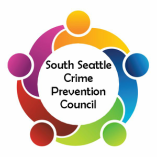Online Banking Scams (Phishing)
Online banking scams, also known as Phishing, occur when criminals pose as a legitimate bank or other financial institution in order to trick you out of your money or available financial credit. The criminals either send you an email posing as your bank/financial institution, or arranges for pop-up advertising which looks like it might be from your bank/financial institution to appear as you browse or shop online. Such false emails and ads ask that you go to a website to update your account information. Often, the language used in these false emails and fraudulent websites is full of spelling, grammar, and usage errors; many times, words and phrases a legitimate business would never use show up in these scam sites. You are asked to provide personal information (such as your name, date of birth, social security number) and banking/financial information (such as account numbers, credit and/or debit card numbers, PINs). Once you have typed/entered this information, the scammers/phishers have access to your accounts, your credit; they may even commit other kinds of theft using your data.
Legitimate banks, credit unions, credit card companies, and other financial service providers DO NOT send emails to their customers asking for personal and financial data.
Prevent Online Banking/Financial Transactions Fraud:
- Check savings and checking account balances regularly.
- Always check, then save, receipts from bank deposits and withdrawals; know the amounts in your accounts!
- Cross-shred/completely destroy all unwanted bank/financial personal documents.
- Never follow links to connect to your accounts--always type in your bank's web address in your browser yourself.
- Never open suspicious emails claiming to be from your bank--call the bank, speak with a human being.
- Check accounts to make sure these have not been corrupted/broken into/hacked/scammed.
- Always enter your credit or debit card information from a secured-transaction website.
- Always check for unauthorized account activity--report this immediately to your bank/financial institution.
- Always report lost or stolen bank/credit/or debit cards to your financial institution/bank and the police.
- Always sign your bank/credit/or debit cards before use; write "Check Photo I.D." on cards as well.
- Avoid reading and responding to emails with a number of grammar, spelling, and word choice errors.
- Immediately contact your bank/financial institution if you've replied to a scam/phishing attempt.
